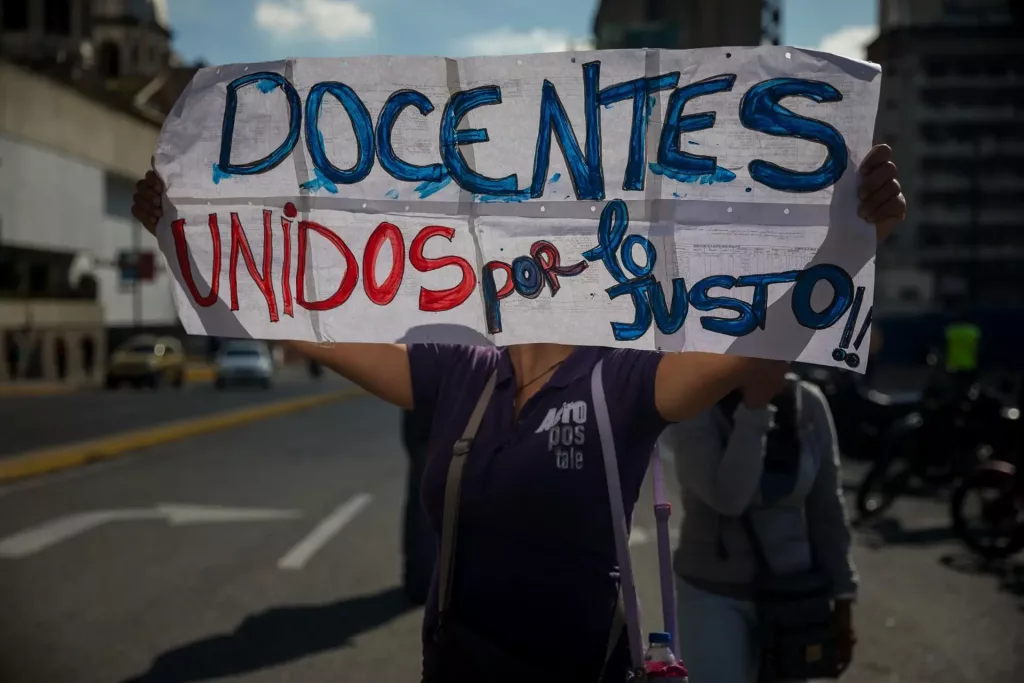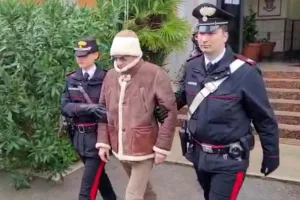Teachers and pensioners have taken to the streets in at least six Venezuelan cities since last Monday, January 16, to demand higher salaries. The protests come as the country struggles to combat soaring inflation that has eroded workers’ wages. Demonstrations have been met with overwhelming support from public workers struggling to live on record-low salaries. Over 150 protests have been organized in total and several more were planned for earlier this week.
Marches and demonstrations have been reported in the states of Carabobo, Zulia, Lara, and Tachira, many with hundreds in attendance. Similar protests also occurred in August last year, during which public school teachers rallied against poor conditions in schools and low wages.

Photo by EFE / Miguel Gutiérrez.
In response to this year’s protests, the Venezuelan government awarded public employees a bonus of $29.80. However, according to the leader of the Venezuelan Federation of Teachers, Belkis Bolivar, the Ministry of Education has stated that the government does not have the money to raise salaries. In addition to this, Vice President Delcy Rodriguez took to national television to dismiss the protests as a “destabilization plan” organized by the United States.
While protests have been mostly peaceful, the presence of pro-government gangs has been reported, with footage of gunmen firing shots near protestors circulating around social media. The gangs, referred to as “colectivos”, have also posted videos online threatening the teachers and asking them to stay indoors and refrain from protesting.
Venezuela, which has faced an economic crisis for the last 10 years, has witnessed some of the largest recorded inflation rates in history. Due to the devaluation of the national currency, President Nicolas Maduro has allowed the dollar to freely circulate within the country. While many employees in the private sector are now being paid in dollars, public sector employees continue to be paid in inflation-hit bolivares. This has left public school teachers with a minimum monthly salary of around $10 (21.1 million VEF) which does not cover the cost of food or medicine for most individuals.
The Venezuelan government last raised public-sector salaries in March of 2021. Since then, demand for foreign currency has exceeded the weekly supply of dollars provided by the central bank, causing the Venezuelan bolivar to depreciate further. As of 2023, Venezuela has the lowest minimum wage in Latin America, standing at $8 and as of November 2022, 50.5% of the country lives in poverty.
Cover image by: REUTERS / Leonardo Fernandez Viloria






